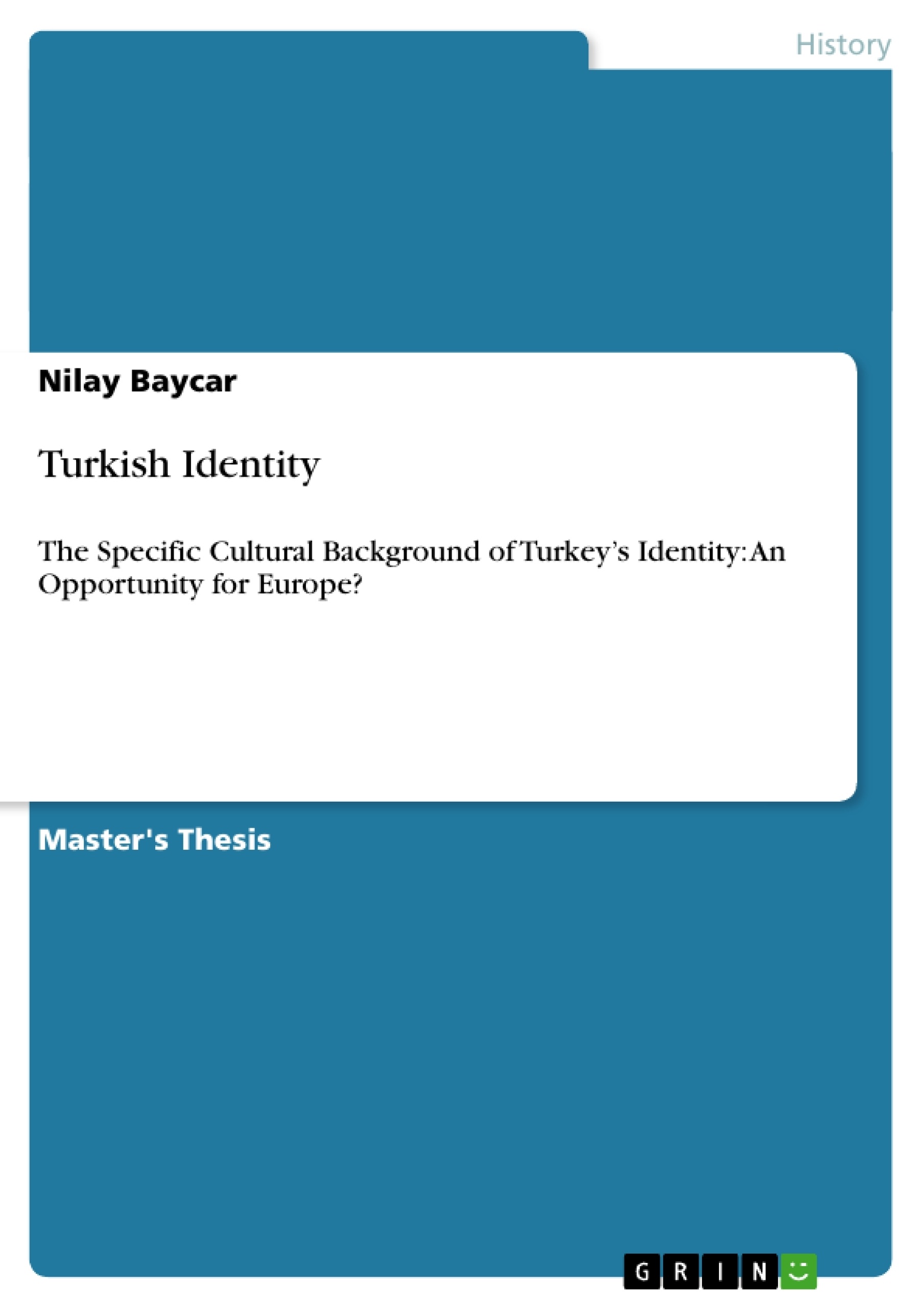Is Turkey a European country? To answer this question, we must first understand what is meant by ‘Europeanness’: Is it a sense of belonging to jewish-greek-roman antiquity, to Christianity, to the Renaissance and the Enlightement; which is the way the substantialists define Europeanness, or rather a commitment to the universal values (liberty, democracy, respect for human rights, fundamental freedoms and the rule of law) upon which the European Union was founded?
The constructivists regard Europeanness as a commitment to European principles,defining the term in a syncretic way. So far, the identity of the European Union has prevalently been defined politically. In answering the question of whether Turkey belongs to the common European cultural heritage or not, it must first be pointed out that there would not have been a European history without Turkey since Turkey is the successor to the Byzantine and Ottoman empires that have shaped Europe. Moreover, it is important to note that the origin of Turkey itself lies within the cradle of European civilisation.
As a contribution to the continuing debate on the place of Turkey within Europe the aim of this master’s thesis is to examine in detail the historical background and context of Turkey’s cultural identity. The paper is structured as follows:
In Chapter 2 discussion will be presented on how ‘Europe’ and ‘Europeanness’ are popularly defined, also European identity and its relevance to the European culture will be discussed in the light of the constructivist approach, bearing in mind that the European Union is a unity in diversity. Having considered the main elements of European culture, the problem areas of European identity will be reviewed in detail. Subsequently, the dynamic dichotomizing concepts of ‘inclusion’ and ‘exclusion’ will be addressed, together with the negative impact of ‘multiple identities’, in order to explain the theoretical background behind Turkey’s characteristic ‘Europeannness’.
In Chapter 3, the issue of the ‘Europeanness of Turkey’ will be examined and accession negotiations between Turkey and the EU will be discussed.
Chapter 4 will clarify the specific character of Turkey describing it as being between the Orient and the Occident.
Chapter 5 surveys political culture in Turkey, from the foundation of Turkish Republic in 1923 up to the present day.
In Chapter 6 the intercultural dialogue between Turkey and Europe will be evaluated.
Inhaltsverzeichnis (Table of Contents)
- Introduction
- Construction of the Work
- Literature Review and Methodology
- Europeanness
- Definition of Europe and Europeanness
- European Identity in Connection with European Culture and Its Problem Fields
- Inclusion, Exclusion and Multiple Identities
- Europeanness of Turkey
- Turkey as (not) a geographical part of Europe
- Turkey as (not) a historical and cultural part of Europe
- Westernisation/Europeanisation Process in Turkey
- From the Era of the Ottoman Empire to the Foundation of the Turkish Republic
- Reforms under the Rule of Sultan Selim III – Nizam-i Jedid (1789-1907)
- Reforms under the Rule of Sultan Mahmut II (1785-1839)
- Reforms in the Era of Tanzimat (1839-1871)
- Military Reforms
- Reforms in the Central Bureaucracy
- Reforms the Judicial Affairs and Secular Laws
- Secular Education in the Era of Tanzimat
- Cultural Changes in the Era of Tanzimat
- Young Turks Era: Transition from Ottoman- to Turkish Nationalism (1908-1918)
- Reforms in the Turkish Republic under the Rule of Atatürk (1922-1938)
- Reforms after the Helsinki Phase (1999-2009)
- Turkey Between Orient and Occident
- Political Culture in Turkey from Atatürk to Erdoğan
- Intercultural Dialogue Between Turkey and Europe and the European Cultural Programmes which Turkey takes part in
- Defining “Europeanness”: The thesis analyzes different perspectives on what constitutes “Europeanness,” examining both historical and contemporary interpretations.
- Turkey’s Cultural Identity: The paper delves into the historical and cultural context of Turkey, tracing its relationship to European identity and the process of Westernization and Europeanization within Turkish society.
- Inclusion and Exclusion: The thesis explores the dynamic concepts of “inclusion” and “exclusion” as they relate to Turkey’s position in Europe, considering the impact of these concepts on Turkish identity.
- Intercultural Dialogue: The work investigates the ongoing dialogue between Turkey and Europe, highlighting European cultural programs and initiatives that Turkey participates in.
- Introduction: This chapter sets the stage for the thesis, introducing the central question of whether Turkey is a European country. It begins by defining “Europeanness” and outlining the different perspectives on the issue. The chapter concludes by outlining the structure and objectives of the thesis.
- Europeanness: This chapter explores the multifaceted nature of “Europeanness.” It examines various definitions of Europe and European identity, analyzing both substantialist and constructivist approaches. The chapter also delves into the complexities of European identity in connection with European culture and its challenges, exploring the concepts of inclusion, exclusion, and multiple identities.
- Europeanness of Turkey: This chapter examines Turkey’s relationship to European identity. It addresses the ongoing debate surrounding Turkey’s geographical and historical position within Europe. The chapter then explores the process of Westernization and Europeanization in Turkey, analyzing various reforms from the Ottoman Empire to the present day.
Zielsetzung und Themenschwerpunkte (Objectives and Key Themes)
This master’s thesis examines the historical background and cultural identity of Turkey in relation to its place within Europe. It seeks to understand the ongoing debate surrounding Turkey’s position and explores the concept of “Europeanness” itself.Zusammenfassung der Kapitel (Chapter Summaries)
Schlüsselwörter (Keywords)
The primary focus of this thesis is on Turkey's cultural identity and its relation to Europe. It explores concepts such as Europeanness, identity, Westernization, Europeanization, inclusion, exclusion, and intercultural dialogue. The thesis draws from historical analysis of Turkey's cultural and political development, examining key periods and figures such as the Ottoman Empire, the Tanzimat era, and the reforms of Atatürk.- Quote paper
- Nilay Baycar (Author), 2009, Turkish Identity, Munich, GRIN Verlag, https://www.grin.com/document/140381




